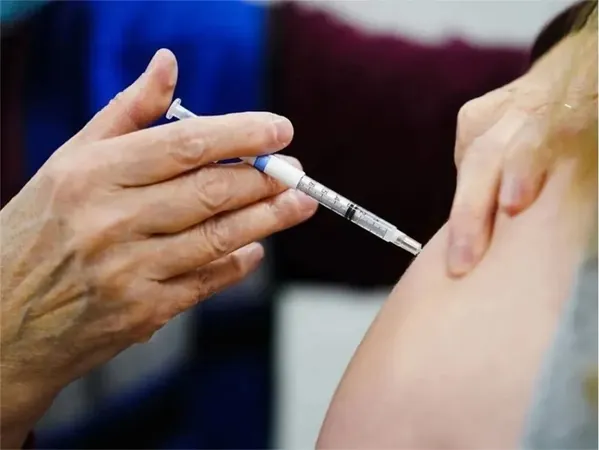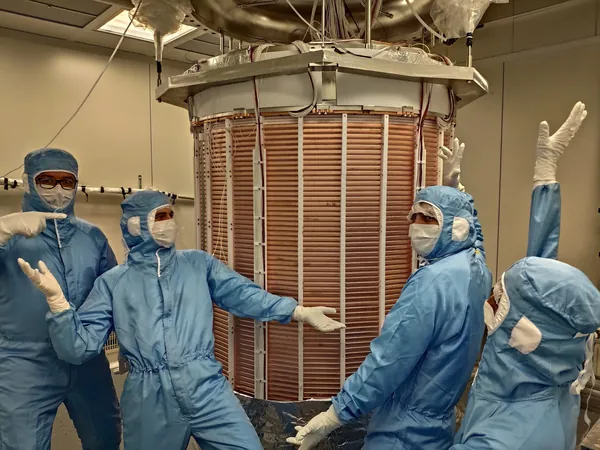
Do COVID-19 Boosters Still Make Sense? What You Need to Know About the Latest Vaccine Rollout
2024-11-07
Author: Benjamin
Do COVID-19 Boosters Still Make Sense?
As we continue to navigate life post-pandemic, questions surrounding the effectiveness and necessity of COVID-19 booster shots have surfaced. Rodney Russell, a prominent virology and immunology professor at Memorial University of Newfoundland, reflects on the changing perceptions of COVID-19 vaccinations.
“I was one of the biggest advocates for COVID vaccines,” Russell admits, “but I find myself feeling a bit complacent now.” He believes the vaccines served their purpose well, providing essential immunity during peak pandemic times, particularly for individuals who hadn’t contracted the virus previously.
Public Perception and Vaccination Efficacy
Despite the initial enthusiasm for vaccinations, public interest in updated boosters appears to be waning. “People don’t think they need them anymore,” Russell observes, even as the risks associated with long COVID loom with every new infection, especially for vulnerable groups like the elderly and immunocompromised. Additionally, Canada’s healthcare system is grappling with overloaded emergency rooms and a shortage of family doctors. Russell firmly states, “There is no doubt that there is a benefit to getting the vaccine.”
Importance of Vaccines in Reducing Transmission
Public health guidance stresses that vaccines, even if their effectiveness against infection wanes quickly, still play a crucial role in reducing community transmission. Each period of decreased infection contributes to a broader effort to minimize viral spread.
The Latest Vaccine Rollout
Recently, provinces including Ontario have launched free updated COVID-19 booster shots for individuals aged six months and older, responding to expert recommendations from Canada’s National Advisory Committee on Immunization (NACI). The advised new vaccines target the KP.2 strain of the Omicron variant, which is currently dominant.
Updated mRNA Vaccines
Unlike last year’s boosters, these updated mRNA vaccines from Moderna and Pfizer-BioNTech are specifically formulated to combat the KP.2 strain. Though they don’t guarantee perfect immunity, they are viewed as a good match against circulating variants, enhancing the body’s immune response.
Who Should Get Boosted?
NACI has specifically recommended the booster for those over 65, individuals with underlying health conditions, pregnant women, and residents in long-term care facilities, among others. The guidance suggests waiting at least three months after the last dose or infection before receiving a booster.
Interestingly, immunity from vaccination tends to last shorter than protection against severe illness, with evidence suggesting it may last around three months against infection. Yet, factors such as age and immune responsiveness play significant roles in how effectively a vaccine can provoke an immune response.
Natural Immunity vs. Vaccination
Natural infections seem to provide a more robust immune response compared to vaccinations, engaging multiple viral components instead of solely the spike protein. Russell compares it to using an entire hockey team rather than just the goalie.
Vaccine Uptake and Public Messaging
Despite Canada boasting one of the highest vaccination rates globally, uptake for booster doses has declined since their introduction in 2021. Pharmacists have experienced sporadic high demand, but overall intentions have dipped due to vaccine fatigue, fears of side effects, and diminished public messaging about the importance of boosters.
Future Outlook on COVID-19 Cases
As for the virus itself, while current COVID-19 indicators show stability, experts anticipate an uptick in cases as we move into fall and winter. Russell initially hoped the virus would stabilize into predictable seasonal patterns; however, the constant mutations of SARS-CoV-2 are making that hope difficult to realize. “It feels like a kind of arms race between our immune systems and the virus,” adds genomic evolutionary biologist Jesse Shapiro from McGill University.
Conclusion
In conclusion, while the urgency for COVID-19 booster shots may seem diminished, the implications of long COVID and the dynamics of evolving variants underscore the importance of remaining vigilant. Engaging with public health guidance and considering personal health circumstances can help individuals determine their own vaccination strategies as the pandemic continues to unfold. Stay informed and proactive—your health may depend on it!









 Brasil (PT)
Brasil (PT)
 Canada (EN)
Canada (EN)
 Chile (ES)
Chile (ES)
 España (ES)
España (ES)
 France (FR)
France (FR)
 Hong Kong (EN)
Hong Kong (EN)
 Italia (IT)
Italia (IT)
 日本 (JA)
日本 (JA)
 Magyarország (HU)
Magyarország (HU)
 Norge (NO)
Norge (NO)
 Polska (PL)
Polska (PL)
 Schweiz (DE)
Schweiz (DE)
 Singapore (EN)
Singapore (EN)
 Sverige (SV)
Sverige (SV)
 Suomi (FI)
Suomi (FI)
 Türkiye (TR)
Türkiye (TR)